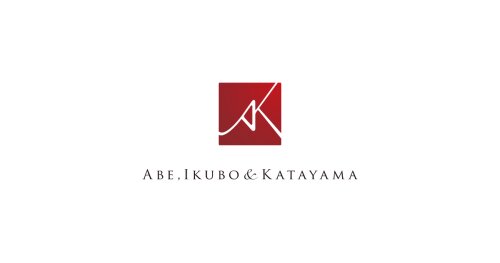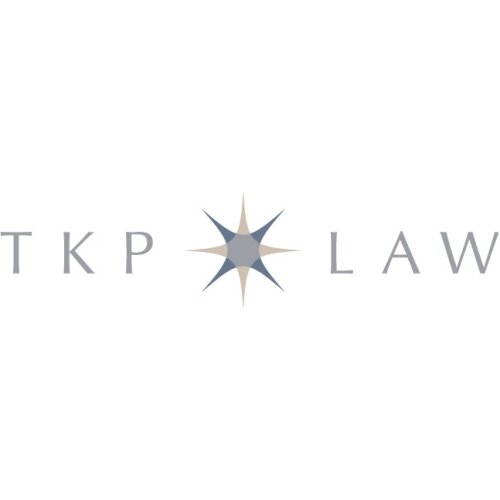Best Structured Finance Lawyers in Tokyo
Share your needs with us, get contacted by law firms.
Free. Takes 2 min.
List of the best lawyers in Tokyo, Japan
About Structured Finance Law in Tokyo, Japan
Structured finance refers to complex financial instruments and transactions designed to help companies manage risk, raise capital, or facilitate large-scale investments. In Tokyo, Japan, structured finance encompasses securitizations, structured loans, project finance, asset-backed securities, and other sophisticated arrangements. These legal structures are often used by corporations, financial institutions, and investors to access liquidity, manage risk profiles, and optimize capital efficiency.
Given Tokyo's central role as a global financial hub, the local legal framework governing structured finance transactions is robust and highly regulated. Lawyers in this field play a critical role in ensuring compliance, structuring deals, and advising clients on both domestic and cross-border transactions.
Why You May Need a Lawyer
Legal assistance is vital in structured finance due to the complexity of the transactions and the stringent regulatory environment. You may require a structured finance lawyer in Tokyo if you are:
- Structuring or negotiating mortgage-backed or asset-backed securities
- Engaging in project finance for infrastructure or energy sectors
- Securing large syndicated loans or establishing collateral
- Structuring debt instruments for tax optimization or investor protection
- Buying, selling, or investing in securitized products
- Facing regulatory scrutiny or compliance matters from financial authorities
- Handling disputes or litigation related to structured finance products
Legal experts help minimize risks, ensure regulatory compliance, and negotiate favorable terms to protect your interests.
Local Laws Overview
Japan’s legal landscape for structured finance is shaped by a combination of national legislation, financial sector regulations, and rules set by the Financial Services Agency (FSA). Key aspects include:
- Securitization Laws: The Law Concerning Securitization of Assets and other related regulations establish how financial assets can be pooled and converted into tradable securities.
- Financial Instruments and Exchange Act (FIEA): Governs the issuance, trading, and disclosure obligations of structured products, and regulates market conduct to ensure investor protection.
- Trust Law and Civil Code: Oversee the formation of trusts, collateral structures, and contractual enforceability within structured finance arrangements.
- Banking Act and Lending Regulations: Set requirements for licensed financial institutions participating in structured finance transactions.
- Tax Laws: Affect deal structures, especially concerning withholding tax, consumption tax, and stamp duties on financial transfers.
Compliance with these complex frameworks requires specialized legal knowledge, especially for cross-border transactions or innovative financial products.
Frequently Asked Questions
What is structured finance and how is it used in Japan?
Structured finance involves complex transaction structures such as securitization, project finance, and syndicated loans to channel capital efficiently and manage risks. In Japan, these are commonly used by corporations and banks for funding, risk transfer, and investment strategies.
Do I need regulatory approval for structured finance transactions in Tokyo?
Yes, many structured finance transactions require notification to, or approval from, regulatory authorities such as the Financial Services Agency, especially if they involve public offerings, financial institutions, or consumer investments.
What are the main risks associated with structured finance in Japan?
Risks include regulatory non-compliance, market volatility, legal enforceability of contracts and collateral, tax issues, and counterparty risk. Legal counsel helps anticipate and mitigate these risks.
How does securitization work under Japanese law?
Japanese law permits the securitization of various assets by transferring them to a special purpose company or trust, which issues securities to investors. This process is overseen by specific laws and disclosure requirements to protect investors.
Can non-Japanese entities participate in structured finance deals in Tokyo?
Yes, foreign entities can participate, but must comply with local regulations, which may include registration requirements, tax considerations, and documentation in accordance with Japanese law.
What legal documents are typically involved in structured finance?
Key documents include loan agreements, trust deeds, security agreements, offering circulars, servicing contracts, and disclosure statements. Accurate drafting and review are essential for enforceability and compliance.
Are there any restrictions on the types of assets that can be securitized?
Certain asset classes are restricted, such as future receivables under specific conditions or non-transferable rights. Regulatory guidance may also change, so legal advice is critical before structuring a deal.
What tax implications should I consider in a structured finance transaction?
Structured finance transactions may trigger consumption tax, withholding tax, or stamp duties. Tax structuring is crucial to optimize deal economics and avoid unintended liabilities.
How are disputes typically resolved in structured finance transactions?
Disputes may be resolved through negotiation, mediation, or court litigation. Contracts often include arbitration clauses or specify Japanese court jurisdiction to handle conflicts.
How can I ensure compliance with the Financial Instruments and Exchange Act?
Compliance requires careful documentation, disclosure, reporting, and adherence to investor protection guidelines. Legal professionals monitor ongoing changes and implement best practices for clients.
Additional Resources
If you require more information or assistance, consider consulting the following organizations:
- Financial Services Agency (FSA): Regulatory supervision of structured finance and capital markets
- Japan Securities Dealers Association (JSDA): Guidelines and industry standards for securities transactions
- Bank of Japan: Monetary policy and financial system information relevant to structured finance
- Japan Federation of Bar Associations: Directory of qualified lawyers specializing in finance law
- Tokyo Stock Exchange: Rules and requirements for listing structured products
These bodies provide guidance, regulatory updates, and access to professional support.
Next Steps
If you need legal assistance in the field of structured finance in Tokyo, Japan, start by identifying your specific needs and objectives. Consider the following steps:
- Define your transaction or issue - gather all relevant documents and details
- Research and contact lawyers with proven expertise in structured finance law
- Schedule a consultation to discuss your situation, risks, and regulatory requirements
- Prepare questions about deal structuring, compliance, and timelines
- Follow your lawyer’s guidance, ensuring all documentation and procedures adhere to Japanese laws and regulations
Structured finance transactions are highly specialized and require expert legal advice to navigate successfully in Tokyo’s dynamic market environment. Always consult a qualified professional to safeguard your interests.
Lawzana helps you find the best lawyers and law firms in Tokyo through a curated and pre-screened list of qualified legal professionals. Our platform offers rankings and detailed profiles of attorneys and law firms, allowing you to compare based on practice areas, including Structured Finance, experience, and client feedback.
Each profile includes a description of the firm's areas of practice, client reviews, team members and partners, year of establishment, spoken languages, office locations, contact information, social media presence, and any published articles or resources. Most firms on our platform speak English and are experienced in both local and international legal matters.
Get a quote from top-rated law firms in Tokyo, Japan — quickly, securely, and without unnecessary hassle.
Disclaimer:
The information provided on this page is for general informational purposes only and does not constitute legal advice. While we strive to ensure the accuracy and relevance of the content, legal information may change over time, and interpretations of the law can vary. You should always consult with a qualified legal professional for advice specific to your situation.
We disclaim all liability for actions taken or not taken based on the content of this page. If you believe any information is incorrect or outdated, please contact us, and we will review and update it where appropriate.

















